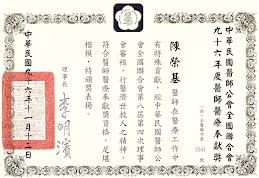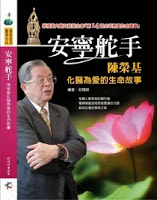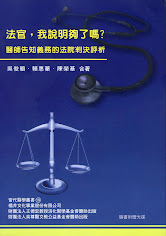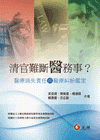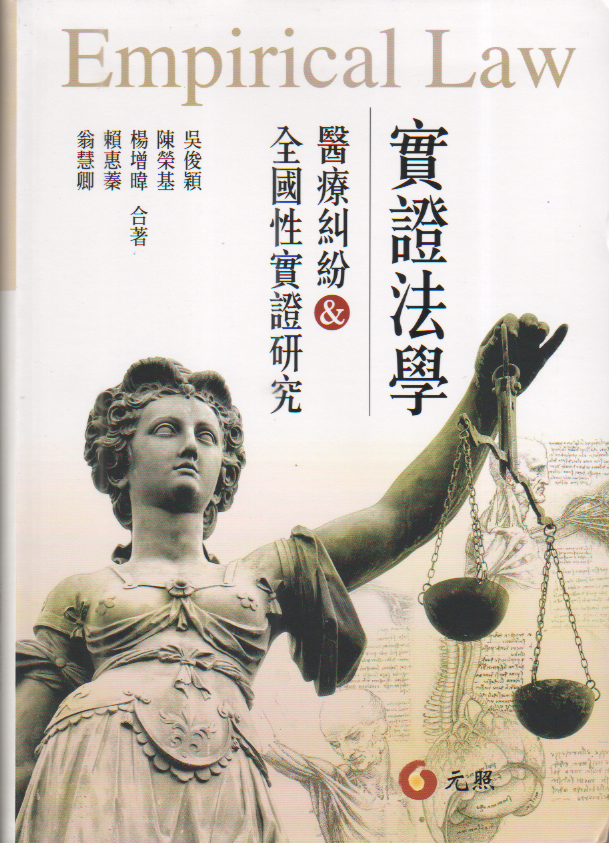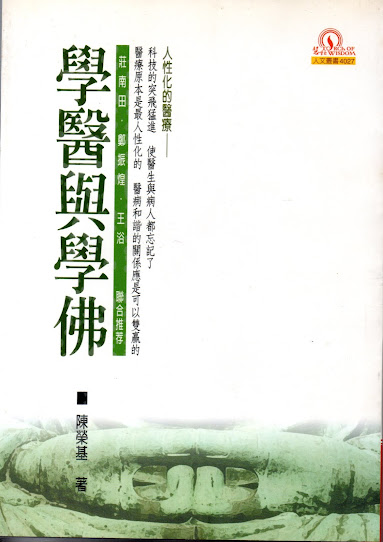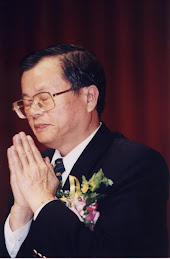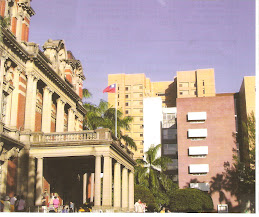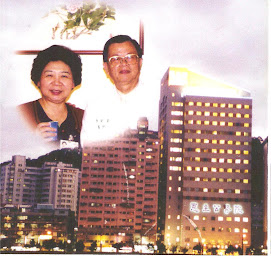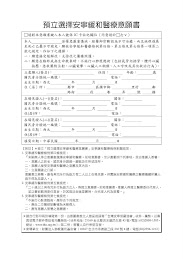越南河內越德醫院代表參訪臺北慈院 [慈院日誌報導] 越南國內頂尖指標醫院,越南河內越德(Viet Duc)醫院,由Mr. Huy(丁曼輝)副院長帶領企劃室主任Dr. Chinh(阮德正)等5人於2012年6月21日來台北慈濟醫院訪問。慈濟基金會結合醫療、人文與慈善志業的優良服務成效,在越南已有國際口碑,因緣際會下Mr. Huy副院長,請前恩主公醫院院長陳榮基教授,協助參訪臺北慈院。對於臺北慈院每天有二百多位志工到院,協助大醫王與白衣大士膚慰病患大德,展現的高度人文關懷成效,以及台北慈院掌握因緣,推動國際醫療服務的成果,深深感動與感佩。慈院由副院長游憲章教授及外科主任楊緒棣教授及志工代表們接待參訪。
2013年6月30日 星期日
2013年6月29日 星期六
<全方位巴金森醫療照護手冊>
吳瑞美教授主編:<全方位巴金森醫療照護手冊>。 健康世界叢書 http://www.health-world.com.tw/main/home/tw/index.html 健康世界雜誌 http://www.health-world.com.tw
2013年6月26日 星期三
"My Grandpa" by Christine Shan




 My granddaughter, Christine Shan, an 8th grade student in Fairfax, Virginia, wrote her home work on “My Grandpa” and got an “A” grade. It seems she caught the essence of her Grandpa’s biography, “The Pushing Hands of Hopsice Movement in Taiwan” which was written in Chinese and available in website book store PUBU BOOK STORE,
http://www.pubu.com.tw/document/17747
or at the Lotus Foundation http://www.lotus.org.twor at the Chou Ta-Kuan Foundation http://www.ta.org.tw.
My Grandpa by
Christine Shan
What do Parkinson’s, Alzheimer’s, and brain tumors all have in common? Every year, millions of lives are saved by neurologists. Neurology is a very challenging field of science. Also, being a neurologist is a stressful career since the brain is the most complicated organ in the body. I admire my Grandpa, Dr. Rong-Chi Chen, because he is compassionate, knowledgeable, and actively involved in his job as a successful neurologist.
Nothing is scarier than stepping into the doctor’s office so it is extremely important that the doctor is compassionate. Dr. Rong-Chi Chen treats all patients with the respect they deserve. He listens to his patients thought and complaints very thoroughly and carefully. Also, he patiently explains all treatment options in great detail. He tells fellow doctors and medical students to treat patients like their own family. Lots of people like Dr. Rong-Chi Chen and would wait in lengthy lines just to see him because he is so compassionate.
To be a professional in neurology, you must have an abundance of knowledge. If a neurologist happened to give a false diagnosis, the patient would be in serious, life-threatening trouble. That’s why it is important to be knowledgeable. Dr. Rong-Chi Chen graduated as top of the class from the best high school and best college in all of Taiwan. In Taiwan, everyone has to take a test to get into medical school. However, Dr. Rong-Chi Chen did not take it because his school already recommended him to any college of his choice. He has cured lots of patients, been researching throughout his life, and had tons of experience. In addition, he has also treated thousands of people and ultimately saved lives. Knowing all that you can in a field as complicated as neurology is vital.
As a child, we were taught to help others, always give back, and stay actively involved in the community. This is exactly what Dr. Rong-Chi Chen does. Even after he retired, he has continuously helped out in the neurology world. He founded multiple organizations to help people. One of the programs is the Lotus Foundation. This foundation is for patients on the brink of death to die with dignity. He fights that terminally-ill patients should not have to go through painful resuscitation just to live a couple more days in agony. Along with charity work, he gives speeches, blogs, and travels, staying actively involved in the health of all people. One person can change the world by staying active and involved.
I look up to neurologists, such as my Grandpa, because he is compassionate, knowledgeable, and actively involved. Neurologists save so many lives and help lots of people. Saving someone impacts their whole family. Have you ever wondered how this world would be without good doctors? Would some of your friends or family still be here? Since my Grandpa is such a great neurologist, he is my hero.
My granddaughter, Christine Shan, an 8th grade student in Fairfax, Virginia, wrote her home work on “My Grandpa” and got an “A” grade. It seems she caught the essence of her Grandpa’s biography, “The Pushing Hands of Hopsice Movement in Taiwan” which was written in Chinese and available in website book store PUBU BOOK STORE,
http://www.pubu.com.tw/document/17747
or at the Lotus Foundation http://www.lotus.org.twor at the Chou Ta-Kuan Foundation http://www.ta.org.tw.
My Grandpa by
Christine Shan
What do Parkinson’s, Alzheimer’s, and brain tumors all have in common? Every year, millions of lives are saved by neurologists. Neurology is a very challenging field of science. Also, being a neurologist is a stressful career since the brain is the most complicated organ in the body. I admire my Grandpa, Dr. Rong-Chi Chen, because he is compassionate, knowledgeable, and actively involved in his job as a successful neurologist.
Nothing is scarier than stepping into the doctor’s office so it is extremely important that the doctor is compassionate. Dr. Rong-Chi Chen treats all patients with the respect they deserve. He listens to his patients thought and complaints very thoroughly and carefully. Also, he patiently explains all treatment options in great detail. He tells fellow doctors and medical students to treat patients like their own family. Lots of people like Dr. Rong-Chi Chen and would wait in lengthy lines just to see him because he is so compassionate.
To be a professional in neurology, you must have an abundance of knowledge. If a neurologist happened to give a false diagnosis, the patient would be in serious, life-threatening trouble. That’s why it is important to be knowledgeable. Dr. Rong-Chi Chen graduated as top of the class from the best high school and best college in all of Taiwan. In Taiwan, everyone has to take a test to get into medical school. However, Dr. Rong-Chi Chen did not take it because his school already recommended him to any college of his choice. He has cured lots of patients, been researching throughout his life, and had tons of experience. In addition, he has also treated thousands of people and ultimately saved lives. Knowing all that you can in a field as complicated as neurology is vital.
As a child, we were taught to help others, always give back, and stay actively involved in the community. This is exactly what Dr. Rong-Chi Chen does. Even after he retired, he has continuously helped out in the neurology world. He founded multiple organizations to help people. One of the programs is the Lotus Foundation. This foundation is for patients on the brink of death to die with dignity. He fights that terminally-ill patients should not have to go through painful resuscitation just to live a couple more days in agony. Along with charity work, he gives speeches, blogs, and travels, staying actively involved in the health of all people. One person can change the world by staying active and involved.
I look up to neurologists, such as my Grandpa, because he is compassionate, knowledgeable, and actively involved. Neurologists save so many lives and help lots of people. Saving someone impacts their whole family. Have you ever wondered how this world would be without good doctors? Would some of your friends or family still be here? Since my Grandpa is such a great neurologist, he is my hero.
『佛法妙用-念佛法要與臨終關懷』專題講座
華梵文教基金會誠摯邀請您蒞臨參加! 『佛法妙用-念佛法要與臨終關懷』專題講座 (免費) ◎時間: 102年6月29日(週六)晚上6:30~8:30 ◎地點: 華梵文教基金會般若堂 台北市承德路3段230 / 232號10樓 ( 圓山捷運站2號出口) ◎主講人: 鑑因法師 ◎洽詢電話:02-2593-5663(福田組) 醫學的目的是預防疾病、治好疾病及解除痛苦,恢復健康。醫生的天職是把病人救活,把疾病消滅,將痛苦解除,促進人類的健康。但是「生、老、病、死」是生命的必經過程,當生命已走到盡頭,死亡已是不可避免時,心裡的悲痛往往大於身體的病痛。如何度過人生的最後階段,不只是病人本身要面對的課題,陪伴在身旁的家人也要學習如何用愛與尊重。『老、病、死誰人能免!不知老,會浪費光陰;不知病,會粗心浮氣;不知死,則妄心不息。…真修行人-可以死,可以病,可以老…心不貪戀,意不顛倒,那就可自在。…知道老,便不放逸,不虛度光陰;知道病,則處處護持自己的慧命,關心他人;知道死,妄心可息。如是,真正道心就出來了。』錄自 曉雲導師{開示錄}
2013年6月24日 星期一
告知病人,如何選擇


 老友許清曉醫師學長說,他的老師Dr. Arnold Relman教授告訴學生及新近住院醫師,在與病人溝通時,要告知病人:「假使我是你,我會做這個選擇,因為.....」。同樣的,家屬也可說:「如果病人是你的父親或母親,請問醫師,你會做那個選擇?」全文如下:http://tw.myblog.yahoo.com/ccshsu-clement/article?mid=2611&prev=2874&next=2570&l=f&fid=60歡迎點閱許清曉醫師部落格http://tw.myblog.yahoo.com/ccshsu-clement
老友許清曉醫師學長說,他的老師Dr. Arnold Relman教授告訴學生及新近住院醫師,在與病人溝通時,要告知病人:「假使我是你,我會做這個選擇,因為.....」。同樣的,家屬也可說:「如果病人是你的父親或母親,請問醫師,你會做那個選擇?」全文如下:http://tw.myblog.yahoo.com/ccshsu-clement/article?mid=2611&prev=2874&next=2570&l=f&fid=60歡迎點閱許清曉醫師部落格http://tw.myblog.yahoo.com/ccshsu-clement
2013年6月21日 星期五
預立DNR意願健保卡註記流程
.JPG)
2013年6月19日 星期三
Promotion of Buddhist Clinical Chaplaincy in Hospice Palliative Care in Taiwan
 Promotion of Buddhist Clinical Chaplaincy in Hospice Palliative Care in Taiwan.●
Rong-Chi Chen [http://www.lotus.org.tw]
The caring domain of a physician is from birth to death, from “womb to tomb”. At the end of terminal care, physicians should maintain a religious and holistic spirit of “removal of suffering and provision of happiness” to their patients, as much as he could. Hospice palliative care was introduced into Taiwan in 1990 by the Christian Mackay Memorial Hospital. In 1994 the Buddhist Lotus Hospice Care Foundation (Lotus Foundation) was established. In 1995 a Palliative Care Unit was opened in the National Taiwan University Hospital (NTUH). Since more than 70% of the Taiwan population are Buddhist or followers of Buddhism, Buddhist monastics are very much needed in the hospice care. However, there was no training or tradition of Buddhist monastics to participate in the medical care facilities in the past. Since 1998, Lotus Foundation initiated the training program of Buddhist monastics at the NTUH Palliative Unit. Ven. Huimin Bhikshu and Professor Ching-Yu Chen, MD were invited to co-chair the training program. It started the first effort of training Buddhist monastics as chaplains to participate in medical care in the Buddhist history. Many trainees are currently serving in many hospice palliative units as chaplains. In 2007, the trainees joined to establish the “Taiwanese Association of Clinical Buddhist Studies”. Buddhist chaplain became an important team in Taiwan’s hospice care. We are trying to promote the“clinical Buddhist monastics training program” in the curriculum
of the College of Buddhism in the university systems. ●
References:
(1). Chen RC: The spirit of humanism in terminal care: Taiwan experience. Open Area Studies J, 2009; 2: 7-11. [Blog 6/15]
(2) Chen CY: Clinical Buddhist chaplain based spiritual care in Taiwan. Taiwan Hosp Pall Care 2012; 17: 300-309. [Blog 6/14]
(3). Huimin B: The role of mindfulness in hospice & palliative care in Taiwan. Taiwan J Hosp Pall Care 2012; 17: 200-209. [Blog 6/13]
(4) Watts JS, Tomatsu Y. The development of indigenous hospice care and clinical Buddhism in Taiwan. In: Watts JS, Tomatsu Y. (Eds) Buddhist Care for the Dying and Bereaved in the Modern World. Boston: Wisdom Publ 2012: 111-129.
Promotion of Buddhist Clinical Chaplaincy in Hospice Palliative Care in Taiwan.●
Rong-Chi Chen [http://www.lotus.org.tw]
The caring domain of a physician is from birth to death, from “womb to tomb”. At the end of terminal care, physicians should maintain a religious and holistic spirit of “removal of suffering and provision of happiness” to their patients, as much as he could. Hospice palliative care was introduced into Taiwan in 1990 by the Christian Mackay Memorial Hospital. In 1994 the Buddhist Lotus Hospice Care Foundation (Lotus Foundation) was established. In 1995 a Palliative Care Unit was opened in the National Taiwan University Hospital (NTUH). Since more than 70% of the Taiwan population are Buddhist or followers of Buddhism, Buddhist monastics are very much needed in the hospice care. However, there was no training or tradition of Buddhist monastics to participate in the medical care facilities in the past. Since 1998, Lotus Foundation initiated the training program of Buddhist monastics at the NTUH Palliative Unit. Ven. Huimin Bhikshu and Professor Ching-Yu Chen, MD were invited to co-chair the training program. It started the first effort of training Buddhist monastics as chaplains to participate in medical care in the Buddhist history. Many trainees are currently serving in many hospice palliative units as chaplains. In 2007, the trainees joined to establish the “Taiwanese Association of Clinical Buddhist Studies”. Buddhist chaplain became an important team in Taiwan’s hospice care. We are trying to promote the“clinical Buddhist monastics training program” in the curriculum
of the College of Buddhism in the university systems. ●
References:
(1). Chen RC: The spirit of humanism in terminal care: Taiwan experience. Open Area Studies J, 2009; 2: 7-11. [Blog 6/15]
(2) Chen CY: Clinical Buddhist chaplain based spiritual care in Taiwan. Taiwan Hosp Pall Care 2012; 17: 300-309. [Blog 6/14]
(3). Huimin B: The role of mindfulness in hospice & palliative care in Taiwan. Taiwan J Hosp Pall Care 2012; 17: 200-209. [Blog 6/13]
(4) Watts JS, Tomatsu Y. The development of indigenous hospice care and clinical Buddhism in Taiwan. In: Watts JS, Tomatsu Y. (Eds) Buddhist Care for the Dying and Bereaved in the Modern World. Boston: Wisdom Publ 2012: 111-129.
2013年6月17日 星期一
2013年6月15日 星期六
The Spirit of Humanism in Terminal Care: Taiwan Experience




 Rong-Chi Chen:
﹝The Spirit of Humanism in Terminal Care: Taiwan Experience]
[The Open Area Studies Journal 2009; 2:7-11]
http://www.benthamscience.com/open/toarsj/articles/V002/7TOARSJ.pdf
Rong-Chi Chen:
﹝The Spirit of Humanism in Terminal Care: Taiwan Experience]
[The Open Area Studies Journal 2009; 2:7-11]
http://www.benthamscience.com/open/toarsj/articles/V002/7TOARSJ.pdf








































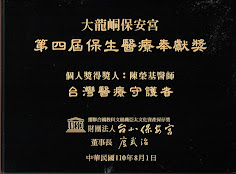

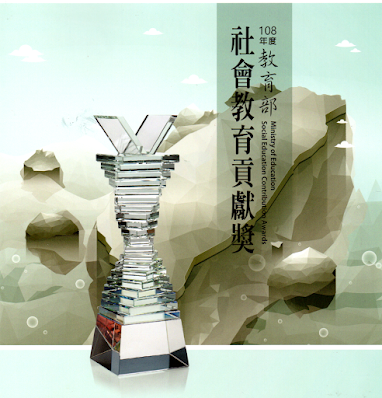

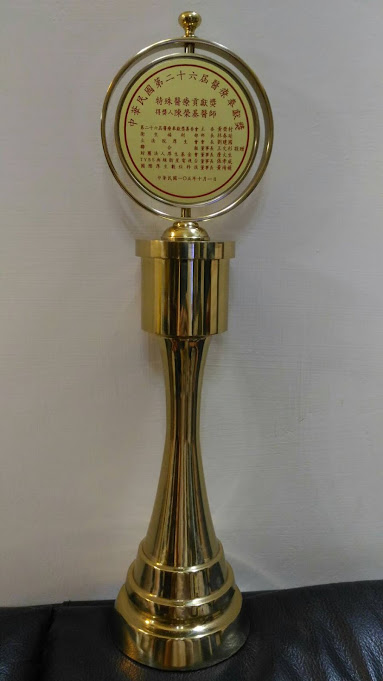
![2015周大觀基金會熱愛生命獎章<[請點下圖連署支持全責護理]>](http://3.bp.blogspot.com/-0XE7vtBmB6Y/VijWC6eVOtI/AAAAAAAAN84/lZpfif8QS5k/s1600-r/Fcover_final.jpg)

